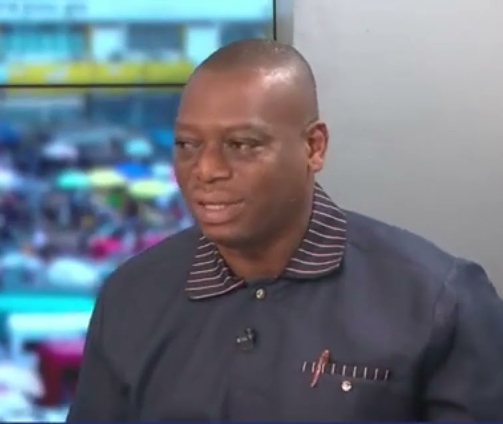Deputy Minister for Education, Prof. Kingsley Nyarko, has called on Organised Labour to reconsider its decision to embark on a nationwide strike over the issue of illegal mining, known as galamsey.
He made this appeal while speaking at the Ghana Teacher Prize ceremony in Kumasi on Thursday, October 3, where he addressed concerns about the planned industrial action.
Prof. Nyarko urged Organised Labour to explore alternative solutions, stating that a strike may not be the most effective way to address the galamsey crisis.
He emphasised the importance of continued dialogue and collaboration among all relevant stakeholders to find a lasting solution to the environmental degradation caused by illegal mining.
According to him, dialogue would yield better results than halting national productivity.
The planned nationwide strike, scheduled for October 10, was announced by Organised Labour in response to the government’s failure to declare a state of emergency over the galamsey menace.
Organised Labour argues that illegal mining has caused extensive damage to Ghana's environment, particularly to water bodies and farmlands, and more decisive action is urgently needed.
Prof. Nyarko, who also serves as the Member of Parliament for Kwadaso, stressed that while the concerns raised by Organised Labour are valid, striking would not necessarily bring about the needed change.
He reiterated the need for a cooperative approach, involving the government, labour groups, and other key players, to develop a comprehensive plan to combat illegal mining and mitigate its harmful effects.
“For me, it’s more about dialogue, because the government and individuals are concerned about the activities of galamsey. The government has put in place interventions to deal with this issue."
“It demands collective efforts not only from the government but from other civil society and the media should be involved as well, chiefs, traditional leaders, the clergy and everybody must come on board for us to deal with it"
“I will plead with Organised Labour that instead of embarking on strike we don’t know when it will end, the best way is to keep engaging the authorities for us to come to a meaningful, progressive and productive solution to this particular problem. Industrial action will only lead to a reduction in productivity that will affect our revenue.”
Latest Stories
-
Managing Prediabetes with the Help of a Dietitian
18 mins -
Joy FM listeners criticise Achiase Commanding Officer’s election comment
38 mins -
Legal Aid Commission employees threaten strike over poor working conditions
41 mins -
Ghana ranked 7th globally as biggest beneficiary of World Bank funding
51 mins -
IMF board to disburse $360m to Ghana in December after third review
55 mins -
Former Bono Regional NPP organiser donates 13 motorbikes to 12 constituencies
1 hour -
Securities industry: Assets under management estimated at GH¢81.7bn in quarter 3, 2024
1 hour -
Gold Fields Ghana Foundation challenges graduates to maximise benefits of community apprenticeship programme
3 hours -
GBC accuses Deputy Information Minister Sylvester Tetteh of demolishing its bungalow illegally
3 hours -
Boost for education as government commissions 80 projects
3 hours -
NAPO commissions library to honour Atta-Mills’ memory
3 hours -
OmniBSIC Bank champions health and wellness with thriving community walk
3 hours -
Kora Wearables unveils Neo: The Ultimate Smartwatch for Ghana’s tech-savvy and health-conscious users
3 hours -
NDC supports Dampare’s ‘no guns at polling stations’ directive
3 hours -
Police officer interdicted after video of assault goes viral
4 hours

